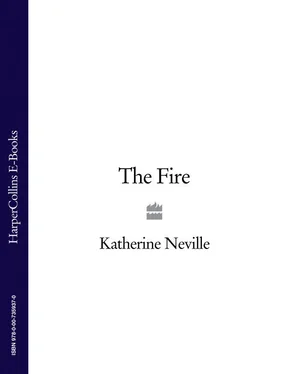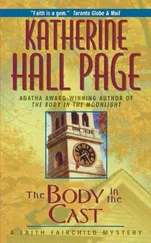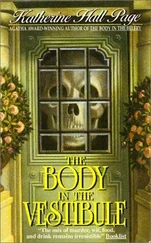The degenerate Ottoman sultans – ensconced in their harems in the ‘Golden Cage’ of the Topkapi Palace at Constantinople – had always raised armies by imposing upon their outlying Christian provinces a levee called the Devishirme – the ‘Tax of Children.’ Each year, one in every five Christian boys was removed from his village, then taken to Constantinople, converted to Islam, and enrolled in the sultan’s armies. Despite the injunctions of the Qur’an against forcible conversion to Islam, or against selling Muslims into slavery, the Devishirme had existed for five hundred years.
These boys, their successors, and their descendants had grown into a powerful, implacable force that even the Sublime Porte at Constantinople could not control. The Janissary troops, when not otherwise employed, did not blanch at setting the capital city aflame, robbing civilians in the streets – nor even removing sultans from their thrones. The sultan Mahmud II had lost his own two predecessors to such Janissary predations. He’d decided it was time to put a stop to it.
But there was a twist to the plot – and it lay right here in the White Land. That problem was precisely why Sultan Mahmud had sent his armies here over the mountains, why they had laid siege to these lands for the past two years. Why their vast armies had been waiting outside the Castro to bombard the fortress of Demir Kule. But this problem also explained why they had not yet been successful – why the Janissaries had not demolished the fortress. And it was this problem that gave Chief Minister Mehmet Effendi and his companion more than a small bit of confidence tonight, as they stood here now, watching, in the bell tower of St Pantaleon, in the predawn light.
There was only one thing on earth that the all-powerful Janissaries truly venerated – something they had continued to revere, over all the past five hundred years of their military corps’ existence. This was the memory of Haji Bektash Veli – the thirteenth-century founder of the mystical Bektashi order of Sufi dervishes. Haji Bektash was the Pir of the Janissaries – their patron saint.
This was, in truth, why the sultan feared his own army so. Why he’d had to replenish the forces fighting here with mercenaries drawn from other pashiliks, elsewhere throughout his far-flung empire.
The Janissaries had become a true menace to the empire itself. Like religious zealots, they swore an oath of allegiance drenched with secret mystical codes. Worse, they swore allegiance only to their Pir – not to the house of Osman or its sultan, trapped in his Golden Cage on the Golden Horn.
I have trusted in God… (so began the Janissaries’ oath)
W e are believers of old. We have confessed the unity of Reality. We have offered our head on this way. We have a prophet. Since the time of the Mystic Saints we have been the intoxicated ones. We are the moths in the divine fire. We are a company of wandering dervishes in this world. We cannot be counted on the fingers; we cannot be finished by defeat. No one outside of us knows our state.
The Twelve Imams, the Twelve Ways, we have affirmed them all: the Three, the Seven, the Forty, the light of the Prophet, the Beneficence of Ali, our Pir – the head sultan, Haji Bektash Veli…
It gave Mehmet Effendi and General Vaya relief to know that the greatest Bektashi representative here on earth – the Dede, the oldest Baba – had traveled over the mountains to be here tonight. To be present for the event they had all awaited. The Baba, who alone knew the true mysteries and what the omens might portend.
But despite all the omens, it seemed something may have gone wrong.
Chief Minister Effendi turned to General Vaya in the darkened bell tower of the monastery. ‘This is an omen I do not understand,’ he told the general.
‘You mean, something in the stars?’ General Vaya objected. ‘But my friend, you’ve assured us that all is well in that department. We’ve followed your astrological injunctions to the closest. It’s as you always say: Con-sider means “ with the stars”; dis-aster means “ against them”!
‘Furthermore,’ the general continued, ‘even if your predictions are completely wrong – if the Castro is destroyed, with its millions in jewels and thousands of barrels of powder – as you know, we are all Bektashis here, including the pasha! They may have replaced their leaders with the sultan’s men, but even they haven’t dared to destroy us yet, nor will they attempt it, as long as the pasha holds the “key” that they all covet. And do not forget – we also have an exit strategy!’
‘I fear not,’ said Mehmet Effendi, handing his spyglass to the general. ‘I cannot explain it, but something seems to have happened. There has been no explosion. The dawn is nearly here. And a small bonfire is burning, like a beacon, across the lake.’
‘Arslan’ Ali Pasha, the Lion of Janina, paced the cold, tiled floor of his monastery chambers. He’d never been so terrified in all his life – though not for himself, of course. He had no illusions about what would soon become of him. After all, there were Turks at the other side of the lake. He knew their methods all too well.
Well, he knew what would happen – his head on a pike, like his two poor sons who’d been foolish enough to trust the sultan. His head would be packed in salt for the long sea voyage, then brought to Constantinople, as a warning to other pashas who’d got themselves too far above their station. His head, like theirs, would be stuck on the iron prongs, high on the gates of the Topkapi Palace – the High Gate, the ‘Sublime Porte’ – to dissuade other infidels from rebellion.
But he was no infidel. Far from it, though his wife was a Christian. He was terrified for his beloved Vasiliki, and for little Haidée. He could not even bring himself to think of what would happen to them the very moment that he was dead. His favorite wife and her daughter – now there was something the Turks could torture him with – perhaps even in the afterlife.
He remembered the day he and Vasiliki had met – it was the subject of many a legend. She had been the same age then as Haidée was now – twelve years old. The pasha had ridden into her town that day, years ago, on his prancing, caparisoned Albanian stallion, Dervish. Ali had been surrounded by his broad-chested, long-haired, gray-eyed Palikhari troops from the mountains, in their colorful embroidered waistcoats, shaggy sheepskin capotes, armed with daggers and inlaid pistols tucked in their waist sashes. They were there for a punitive mission against the village, under orders from the Porte.
The sixty-four-year-old pasha himself had cut a dashing figure, with his ruby-studded scimitar in hand and, slung on his back, that famous musket inlaid with mother-of-pearl and silver – a gift of the emperor Napoleon. That was the day – was it seventeen years ago already? – when young Vasiliki had begged the pasha to spare her life and her family’s. He’d adopted her and brought her here to Janina.
She’d grown up in splendor in his many palaces, their courtyards replete with splashing marble fountains, shady parks of plane trees, oranges, pomegranates, lemons, and figs, luxurious rooms filled with Gobelin carpets, Sevres porcelains, and Venetian glass chandeliers. He’d raised Vasiliki as his own daughter and loved her better than any of his own children. When Vasiliki was eighteen, and already pregnant with Haidée, Ali Pasha had married her. He’d never regretted that choice – until today.
But today, at last, he would have to tell the truth.
Vasia. Vasia. How could he have made such a mistake? It must be his age that explained it. What was he? He didn’t even know. Eighty something? His leonine days were over. He would not live to be much older. Of that, he was sure. It was too late to save himself, or even his beloved wife.
Читать дальше












